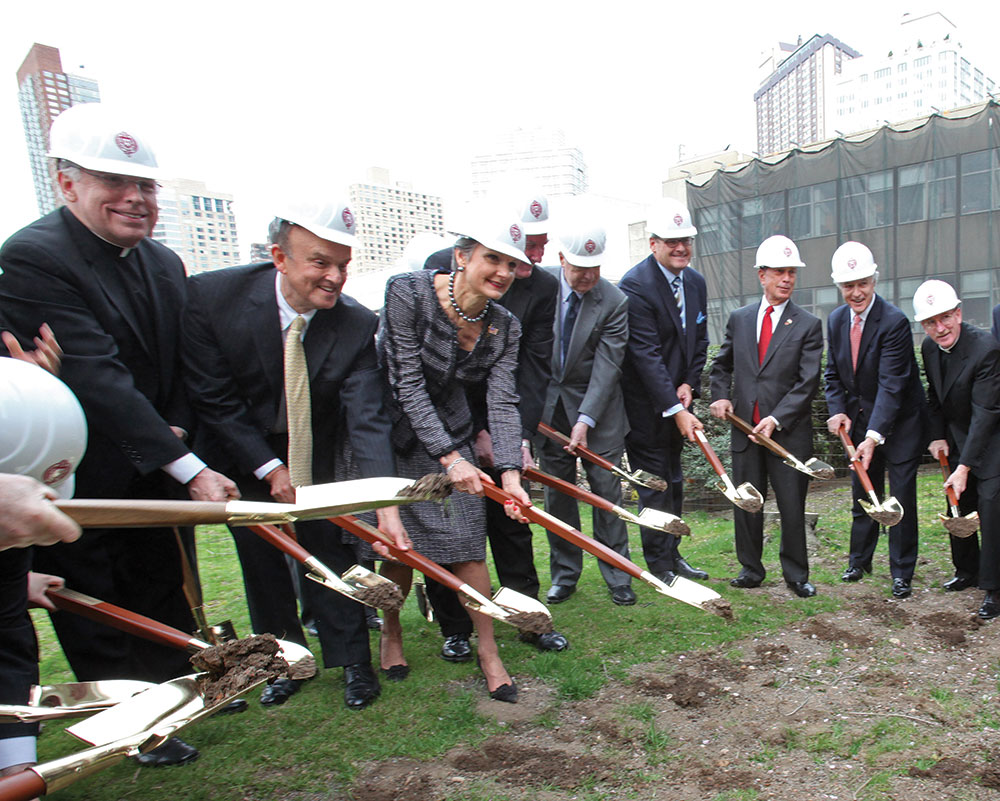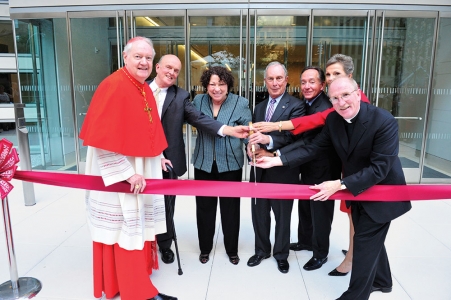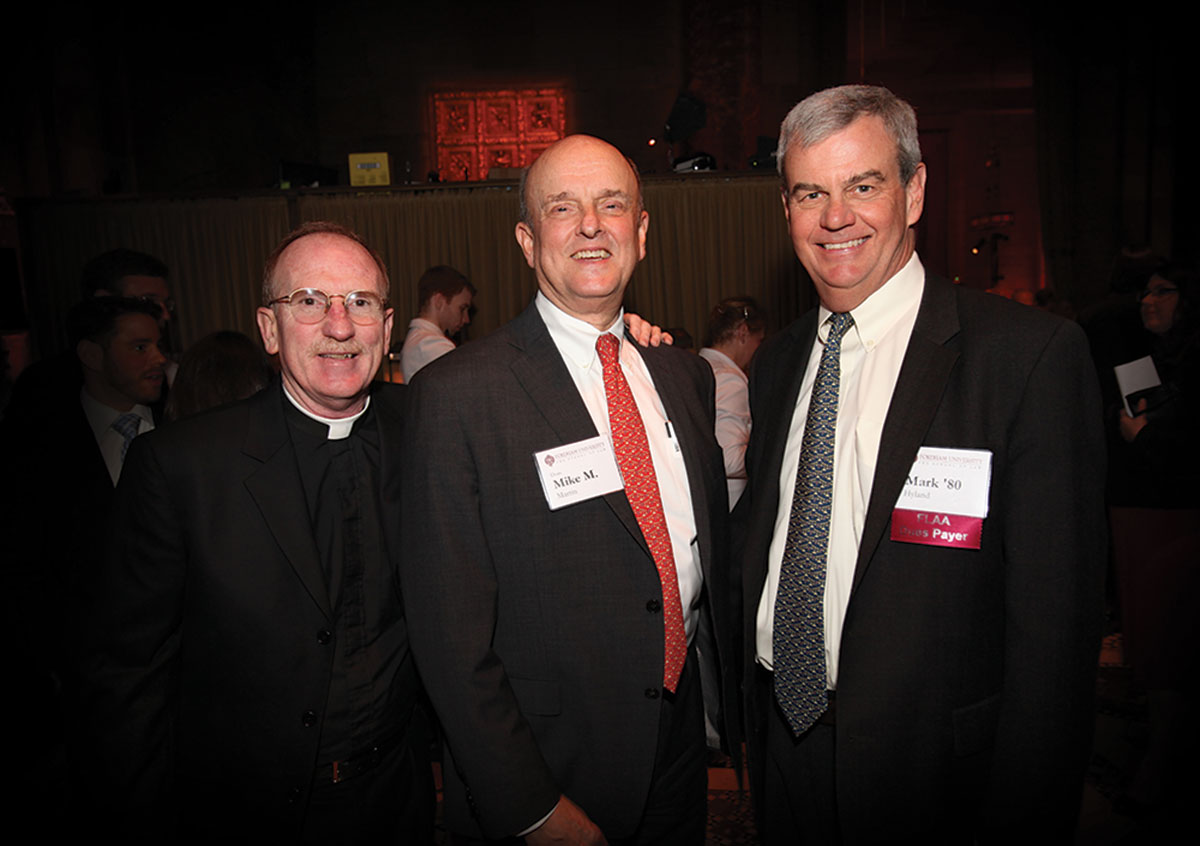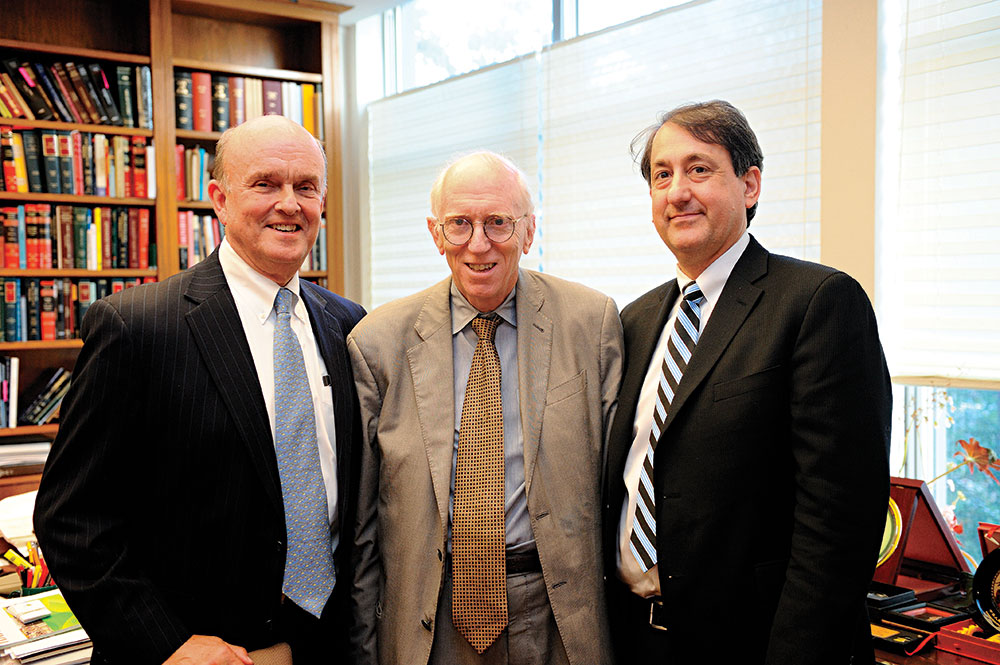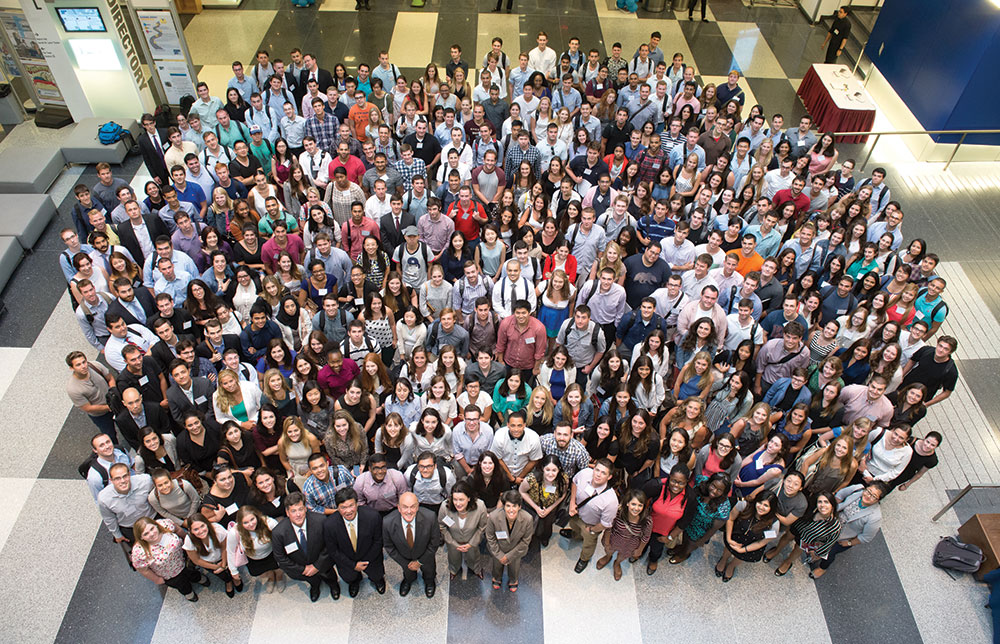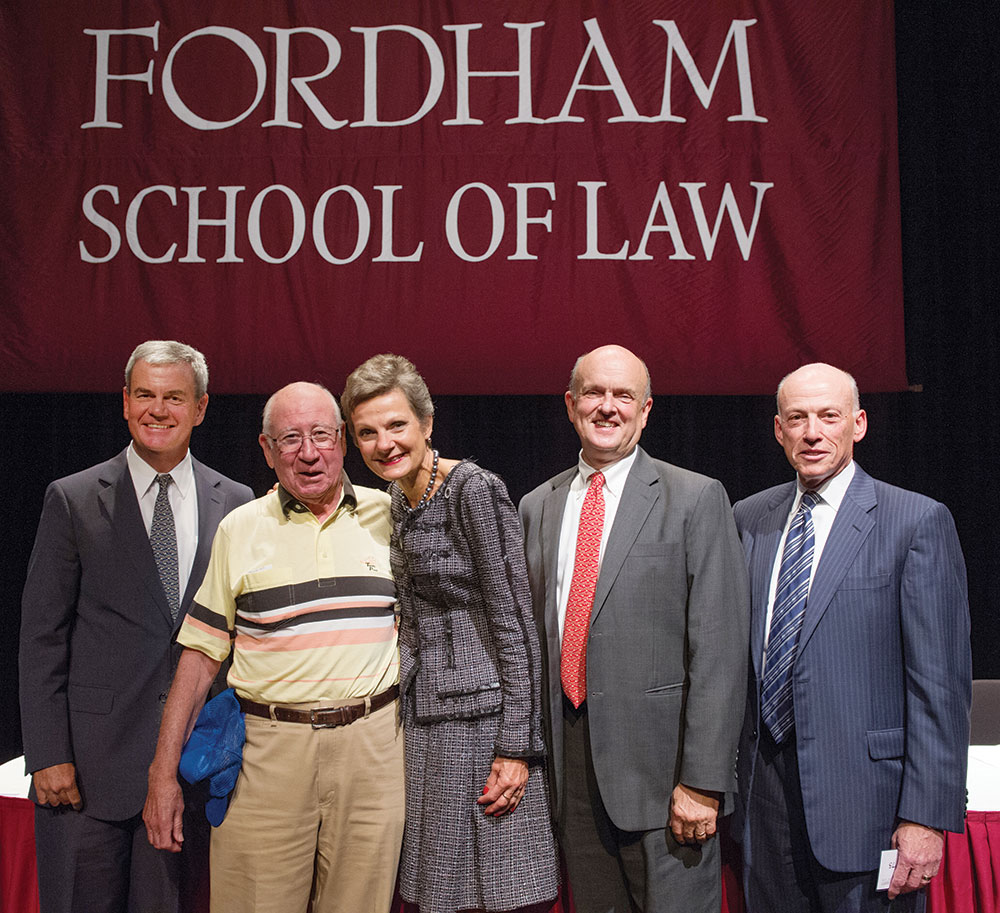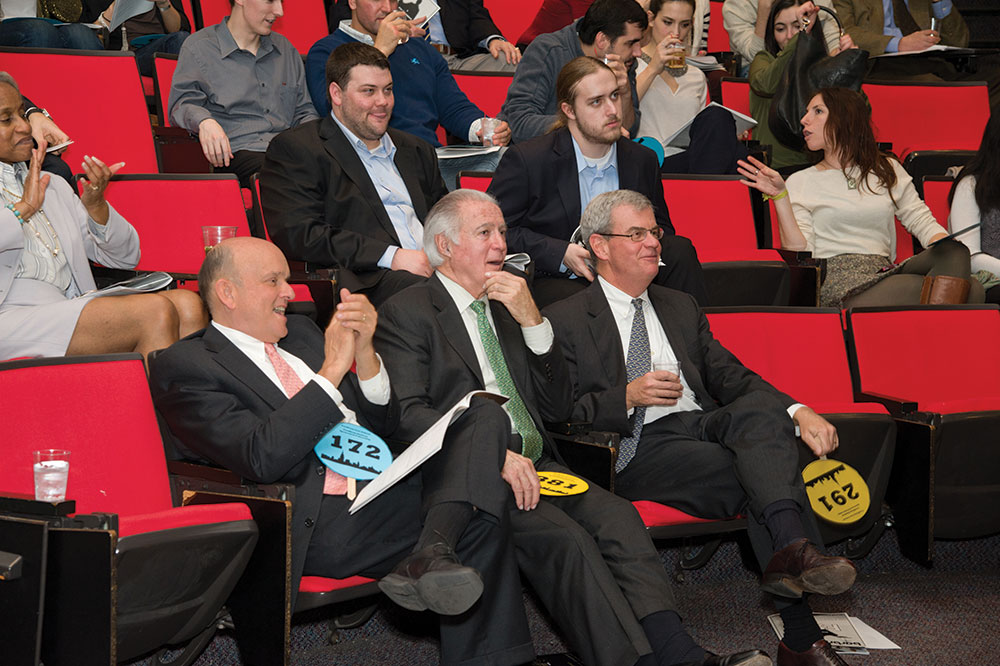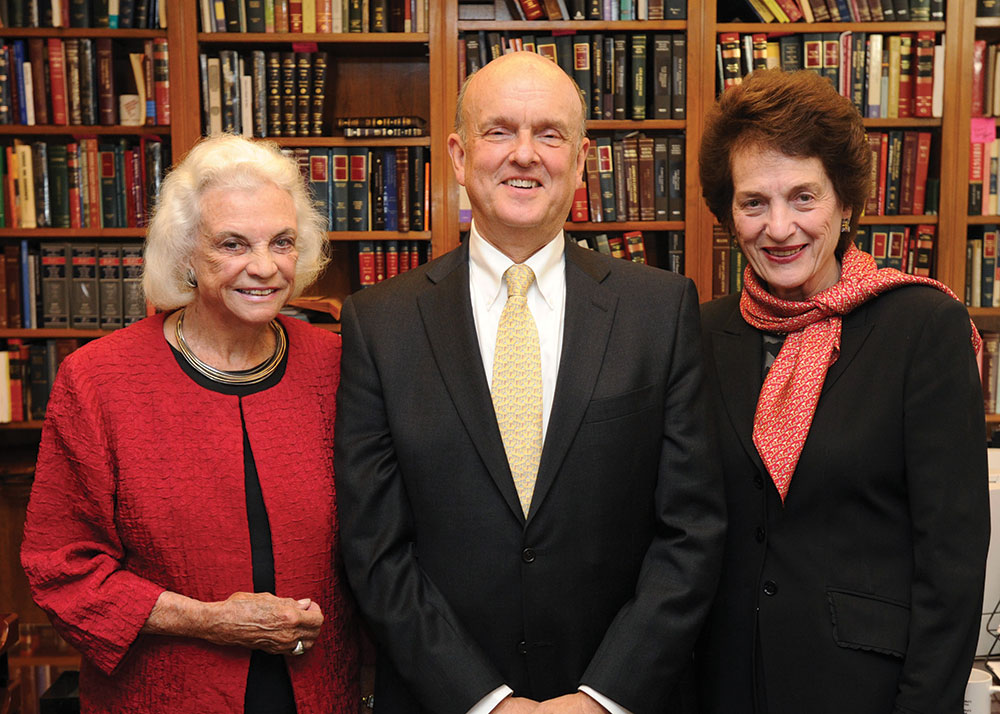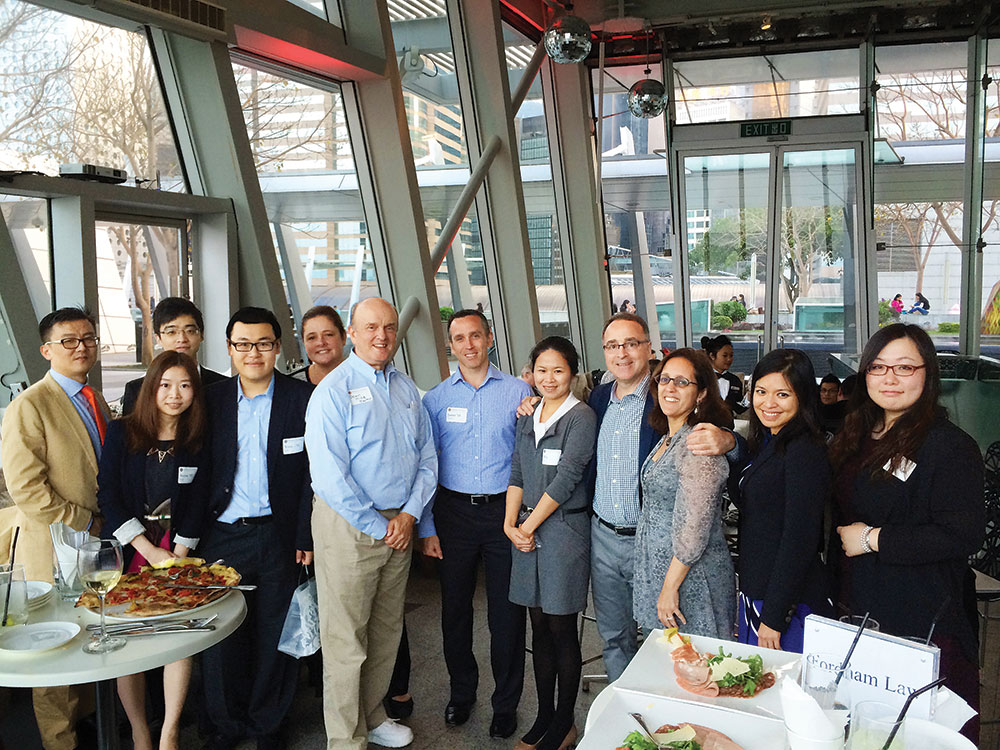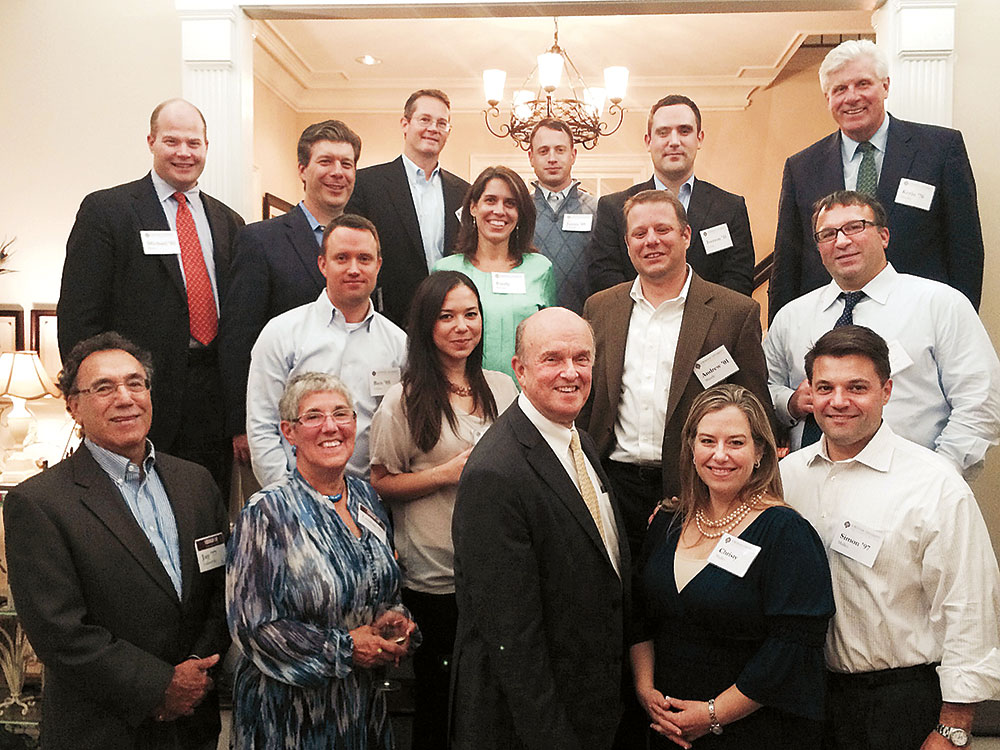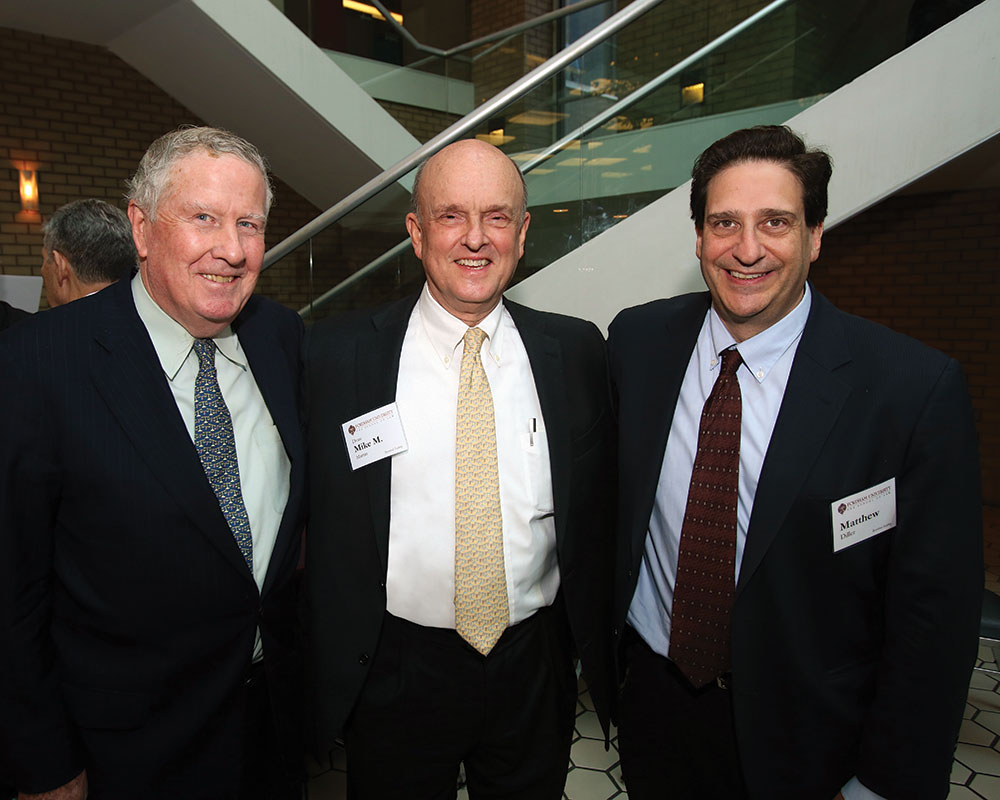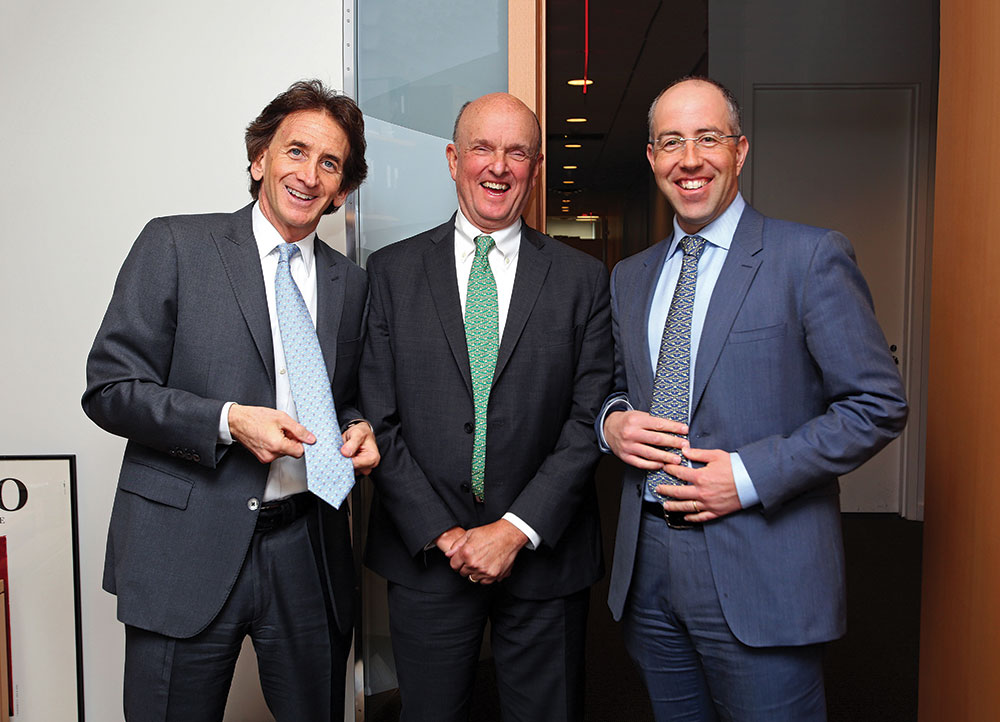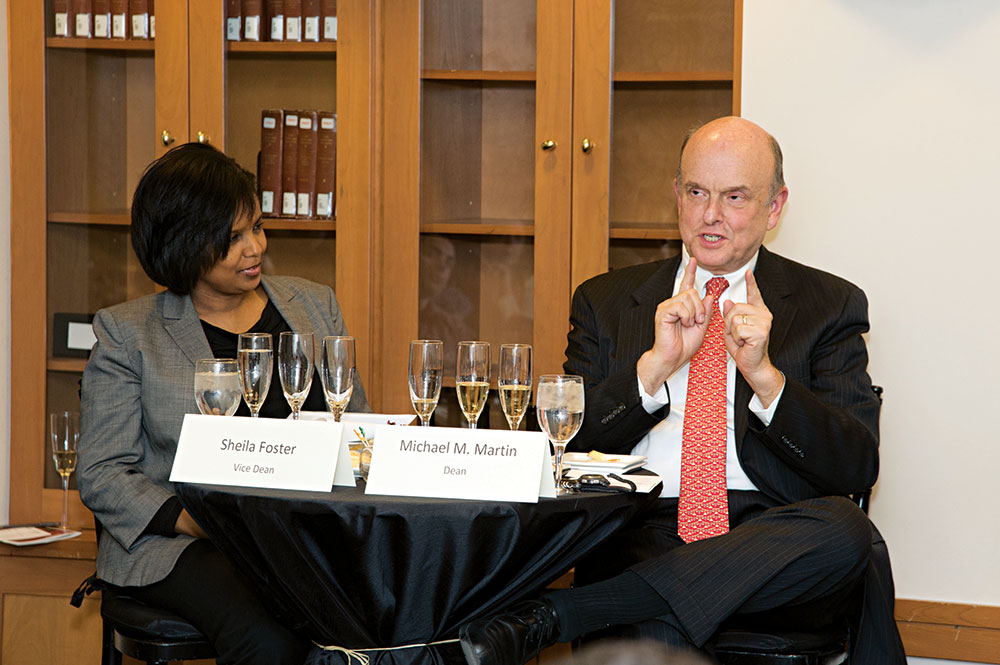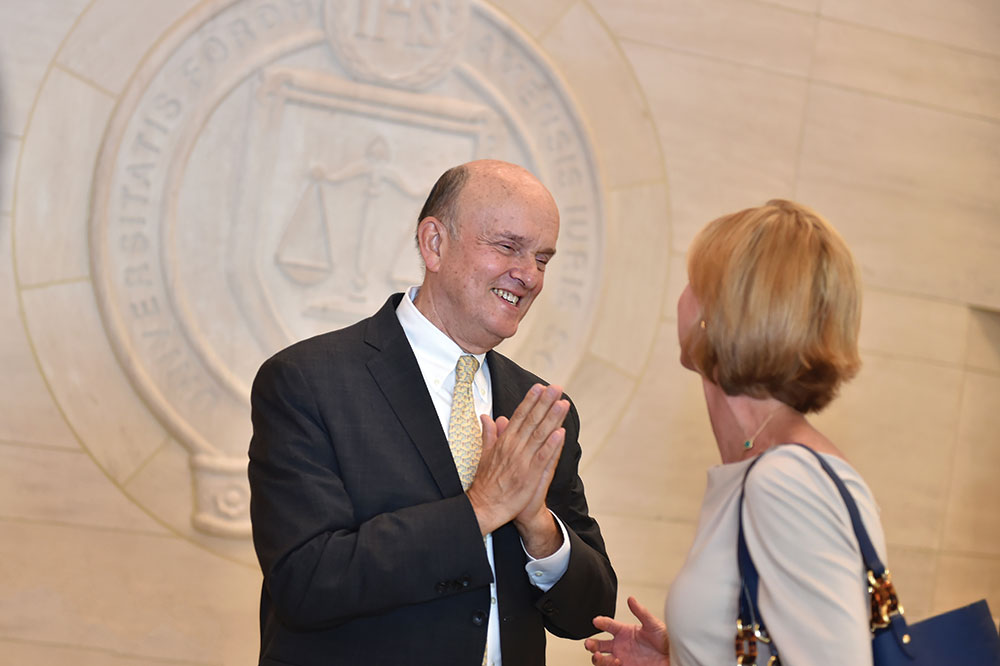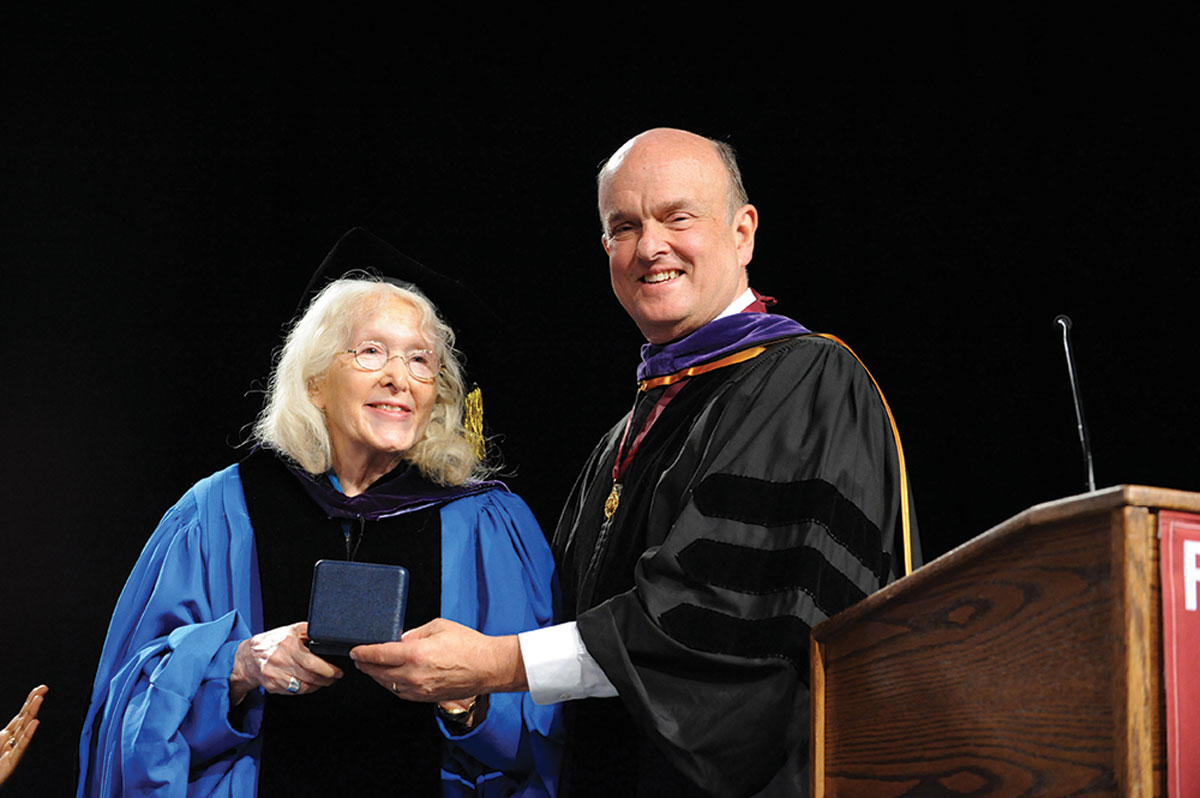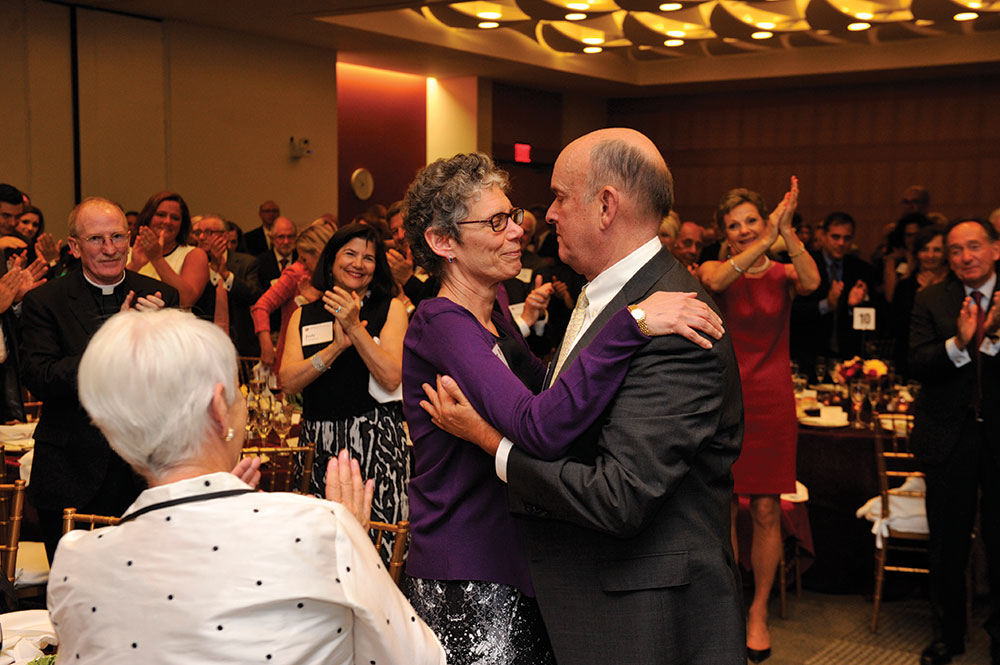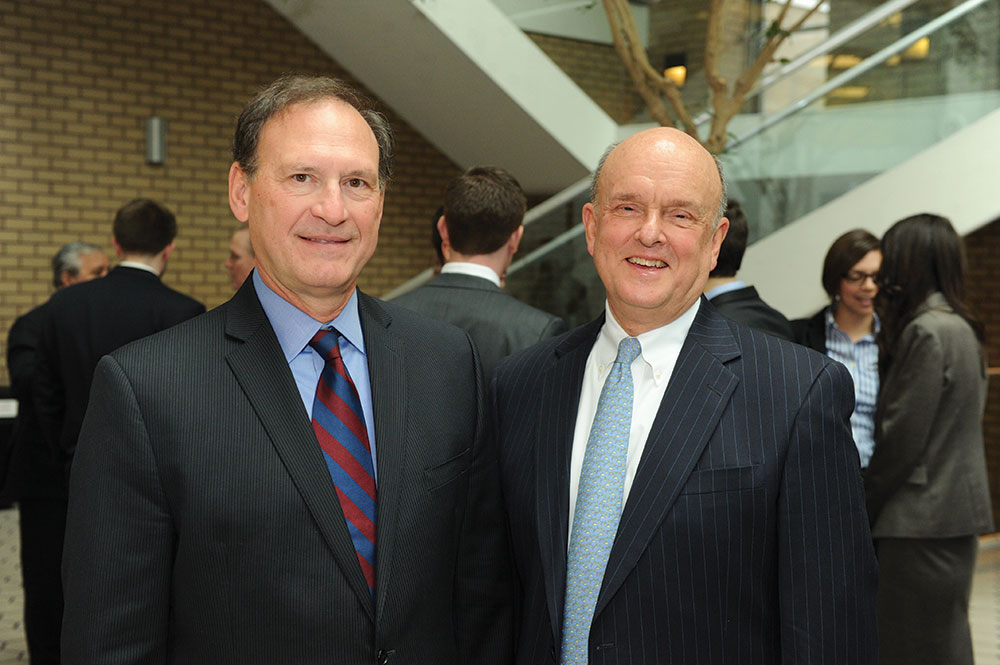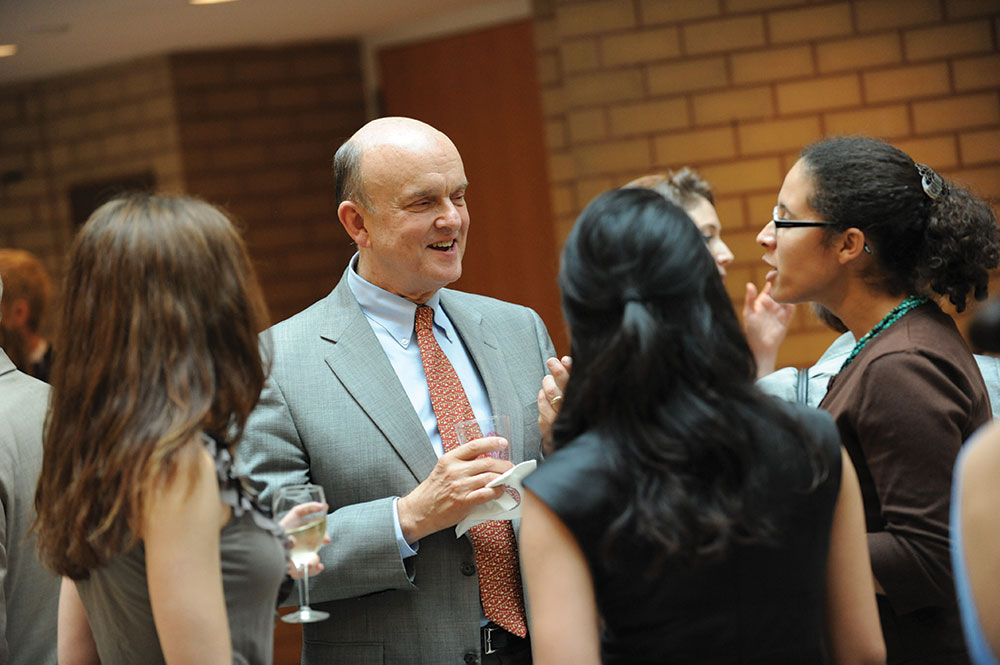Michael M. Martin Steps Down As Fordham Law’s Tenth Dean
LEADERSHIP is often defined by monumental accomplishments, grand gestures, loud pronouncements, and big personalities. Rare, and precious, is the leader who will be remembered for subtle action, understated vision, intelligent nuance, and grace. Outgoing Dean Michael M. Martin is that stoic leader. For the past five years, he has led the Law School with quiet confidence, unshakeable composure, and, above all, a deep and abiding commitment to Fordham Law.
Of course, he will be celebrated for his most visible achievements:
• Shepherding the Law School community into its iconic,
new building
• Increasing financial aid for talented and deserving students
• Strengthening the alumni community, especially through the Fordham Law Alumni Association Strategic Plan
• Stewarding the School’s mission and making prudent budget decisions during a challenging time
in legal education
But perhaps more importantly, he will be remembered for his character and his principles. Here, three of Dean Martin’s colleagues describe that principled leader.
Mike Martin has been a generous, kind, and literally peerless mentor to me over the past 20 years, just as he has been to many others. He has served as a role model as colleague, law professor, first-year torts teacher, and law school administrator. Because he will remain colleague and law professor, but will be ending at least the current round of law school administration—that is, stepping down as our Dean—I will direct my comments to Mike’s qualities as administrator and leader.
From my first summer jobs through to the present, it has been clear to me that an effective leader needs to connect with those he or she leads. And yet there is a distinction between those who connect with those below them in the hierarchical structure of the workplace because they know it is politically savvy to do so and those who connect with those below them out of affection, respect, and a sense of a shared project. To put it differently, the real test of whether someone is a team player is whether the person can be a true team player from the top of the totem pole. On this test, as on every other, Mike is a deeply integrative person and role model—a wonderful collaborator and a fine leader at the same time.
When I took over from Mike’s first stint as Associate Dean in the summer of 2001, he gently and modestly took me through the basics of the job. One part of that transition stands out particularly clearly to me. It was a secret, late Friday afternoon meeting involving a glass of wine and a small plate of cheese and crackers. Those who shared this time — Judith McNatt, Nitza Escalera, Susan Santangelo, and a few others — were then a very large portion of the law school administration.
Running the day-to-day operations of Fordham Law School with a skeletal administrative team put great pressure on Mike and on the members of the team. Nonetheless, these Friday afternoon secret wine-and-cheese sessions were anything but high-pressured; they were entirely chill. Mike’s affection and respect for all those who worked under him was understated but it was never in doubt. And the feeling was mutual, except that everyone really adored Mike and looked up to him as the leader. What was most remarkable to me was how effective Mike was exactly because of his light touch, his trust, and the admiration and good feeling this generated.
Fourteen years later, I can say that the very same attributes have worked beautifully for Mike, guiding the Law School from the top of our hierarchy, with all the complexities that brings. His firm-footed, gracious, and trust-based leadership style not only made it a constant pleasure to work with him, it has succeeded in carrying the Law School through a challenging but remarkably exciting period. And it has offered a glowing example of leadership through collaboration, respect, and authenticity. We will greatly miss Mike as the Dean, but I, for one, will be happy to have him back as a colleague a few doors down.
Benjamin Zipursky
How to define the legacy of Michael Martin’s deanship at Fordham Law School?
Let me offer one guidepost that comes immediately to mind. A small yellow sign sits prominently in the middle of the conference table in Mike’s office. It looks something like a miniature railroad crossing. You can’t miss it whenever you’re meeting with him, as I often do these days. The sign reads “And this would be good for students because … ?”
To me, this question sums up the core philosophy that has guided the myriad daily decisions, large and small, that Mike has made throughout his tenure. Whether setting institutional priorities, making tough calls about budgets, or tirelessly serving as the ambassador to our alumni community and the larger world, Mike knows that students are at the core of the Law School. Mike always has their interests front and center.
In the sweep of Fordham’s history, the story of Mike Martin’s deanship will be one of steady and wise stewardship through an era of great turmoil in American legal education. Applications to law schools have plummeted across the country, law graduates have been facing a difficult job market itself undergoing structural change, and an array of internal and external voices have been questioning the very nature of how law schools approach their mission. Other deans have reacted to these challenges in many ways, some more constructive and some less so. Few, however, can claim Mike’s skill in successfully navigating through the storm, with the polestar of our students
always before him.
Mike has managed this by championing what has always been best about Fordham — our rigor, our ability to gracefully meld theory and practice, our commitment to ethics and the service of others — while never giving up on the need to innovate. Mike’s leadership brought us an iconic new building that has transformed how we teach and interact. This project was in the works, with Mike’s involvement, for decades, but he brought it to fruition during his deanship, from breaking ground to moving in. At the same time, Mike recruited a number of wonderful new faculty members, bringing new energy to an already world-class teaching and scholarly community. During Mike’s deanship, we have modernized our curriculum to meet the changing landscape of legal practice. And Mike has overseen the launch of new programs and areas of excellence — in corporate compliance, entrepreneurship, national security, and others — that build on Fordham’s strengths while tackling critical new areas of inquiry and practice. On each
of these and so many other fronts, Mike has placed the considerations and needs of our students front and center.
Mike has been a true mentor and inspiration to me, most especially because he never forgets what that little yellow sign on his conference table asks. That he has answered that question so well in a time of such challenge is a remarkable legacy.
Nestor Davidson
One of my favorite quotes from the great Maya Angelou is, “I have learned that people will forget what you said, will forget what you did, but people will never forget how you made them feel.”
This quote reminds me of great leaders and public servants like Mike Martin.
I do not understand this quote to mean that words or actions do not matter, but rather that how someone resonates with those around them — the people with whom they interact — is very much a measure of the kind of impact that person has in the world.
Mike Martin is a man of few words and subtle, but powerful, actions. To know Mike well is to have cultivated the ability to read his nonverbal expressions and his body language, but most importantly his moments of quiet contemplation. When Mike speaks, people listen attentively. His words are often few, but they always reflect considered and thoughtful judgment. Most people understand that Mike is a man who “means what he says and says what he means.” We may not have always been conscious of it, but this kind of steadiness and core conviction held the Law School community together during the past few very turbulent years in legal education.
Mike and I are both Midwesterners — I from Michigan and Mike from Iowa. I always attributed the natural kinship and unspoken understanding between us to our shared origins. However, the alchemy that characterized our working relationship, as Dean and Vice Dean, I now understand went beyond our common pedigree. It really goes back to the moment when Mike asked me to serve as his Vice Dean, after he was asked by the university administration to serve as our Dean. Mike had just recently completed his second stint as the Law School’s Associate Dean for Administration and I knew that he was looking forward to returning to his teaching and writing full time.
I understood Mike’s request of me, like the request made of him, as a request to be in service to the Law School. This is the bond we shared and the place from which we governed, and which shaped the decisions that we made, both individually and collectively, as we sought to make the Law School ever stronger and resilient for the years to come. Over the years that we served together, I came to profoundly appreciate and become ever more humbled by Mike’s commitment to service for the sake of service — not for the sake of ego, ambition, or recognition.
Mike is the embodiment of Fordham Law’s motto: In the service of others. Working closely with him, I found his commitment to service simply contagious. I felt it on a daily basis. Although he achieved a great deal during his tenure, changes that are obvious and palpable to even the most casual observer, what I will always remember was how good it felt to be in service to a place that we both love so dearly.


